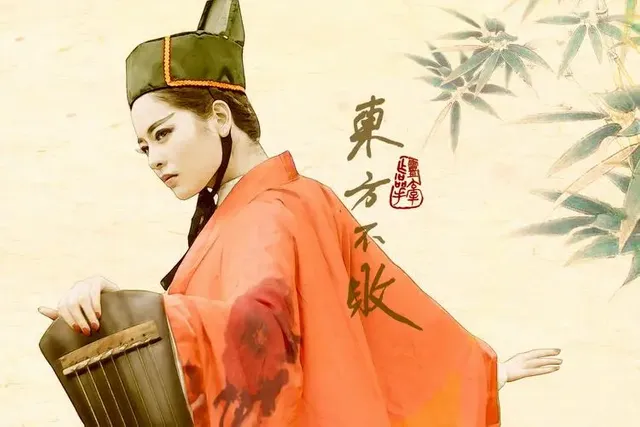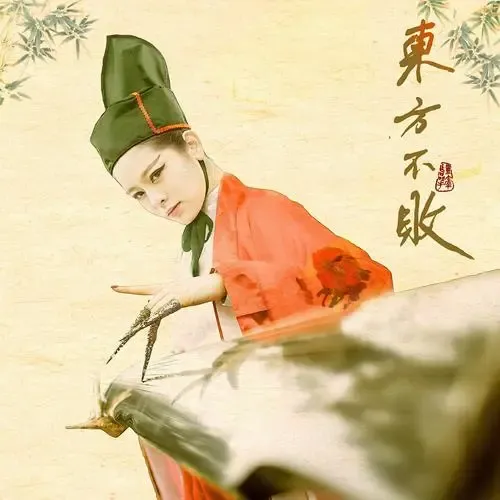
I have never thoroughly read Jin Yong's martial arts novels. In that era when martial arts novels were popular, I had neither time nor money to come into contact with these novels. It seemed that I felt a bit ignorant and incompetent to be addicted to those novels. Moreover, I was not a fan of novels, let alone martial arts novels. Therefore, for me, Jin Yong's martial arts novels were just a few unique and strange names of swordsmen.
Asia the Invincible, a character in Jin Yong's martial arts novel "The Legendary Swordsman", and the leader of the Sun Moon Holy Sect. In order to cultivate the “Ritual of the Void”, he spared no effort to wield his sword to cut his penis and cultivated unparalleled martial arts skills. He was invincible in the world, known as the 'Asia the Invincible' and ranked first in martial arts in the world.
Except for fun, I didn't find the name "Asia the Invincible" meaningful until I read an article by Zeng Shiqiang the other day.
Zeng Shiqiang, a famous scholar in Taiwan, China, a master of Chinese culture, a master of Chinese style management, and the first Chinese style management in the world, is known as the "father of Chinese style management".
A foreigner asked Professor Zeng Shiqiang: "Chinese and Japanese are similar in appearance and skin color. How can we distinguish them? ” Professor Zeng smiled faintly and said, "It's actually very simple. The Japanese often said they the East will win, and the Chinese the East will not lose.
Professor Zeng explained that Chinese people only seek invincibility, not victory over others. Laozi made it very clear that war is a last resort, and without fighting is the end. Sometimes, even if you win a battle, you still lose.
Only when absolutely necessary, will we resort to war. And as a result of the war, as long as the other party has the willingness to make peace, we value peace.
Therefore, Sun Tzu's Art of War says: "Therefore, the best way to use the military is to defeat the enemy by means of strategy. Secondly, defeating the enemy in diplomacy. Thirdly, send troops to attack the enemy. The bad policy is to attack the city wall and moat. This is also the idea advocated by Sun Tzu of defeating others without resorting to war, which ultimately means achieving victory without resorting to war.
We love peace, and the purpose of war is to achieve better peace. Once both parties have the willingness to negotiate, we will end the war and return to the negotiating table. Disputes can be resolved through peace talks, and war will never be initiated.
Many idioms in Chinese can illustrate this point, such as: be a gentleman first and a soldier second, gain mastery by striking only after the enemy has struck, and retreat in order to advance. Chinese Tai Chi Kung Fu may seem mediocre and does not take the initiative to attack. It always seems to be on the defensive, but opponents are difficult to win. Firstly, be humble and prioritize peace. Without fighting is the best strategy. However, if the other party refuses to let this go, we then adopt a strategy of preemptive action. This is the wisdom of the Chinese people, but unfortunately, Westerners do not understand it.
There was a great master who was very skilled in Iron Sands Palm, causing experts from all over the world to come to compete. However, the Great Xia was unwilling to fight and often hid from others. One day, he was found by a group of experts. The great master knew he couldn't escape, so he lied and claimed that his master, who was the great master sought by the experts, had gone into the mountain. The great master asked the experts to sit for a while. He brought a large stone, but the surface of the stone was very uneven and could not sit down. The great master then used his iron sand palm to instantly flatten the surface of the stone. The experts were very surprised and thought to themselves that the disciple of the great master was so powerful, so his master's skills could be imagined. Subsequently, the experts bid farewell and left one after another.
This is the principle of invincibility.
Chinese chess also reflects the viewpoint of "invincible". When two players play chess, the best result is a draw, and everyone is happy. No one can lose face, and no one has failed. Chinese chess advocates defense, as exemplified by the famous "Screen Horse" layout. If you cannot attack, you cannot win. Unlike Go, although it originated in China, it has flourished in Japan and South Korea. Go is won by eating pieces and occupying space, while chess is not determined by the number of pieces. As long as the chief (general) sits firmly in the palace, he will be invincible.
Not seeking victory, only seeking invincibility, is the great wisdom of the Chinese people.
我未曾细读过金庸的武侠小说,在那个武侠小说盛行的年代,我既没有时间更没有金钱来接触这些小说的,似乎我觉得沉迷于那些小说中有点不学无术的味道。况且,我不是小说迷,更不是武侠小说迷。故此,金庸的武侠小说对我来说只是几个侠客的既别致而又奇怪的名字。
东方不败, 金庸武侠小说《笑傲江湖》中的人物,日月神教教主。为修炼《葵花宝典》,不惜挥刀自宫练就一身绝世武功,当世无敌,号东方不败,武功天下第一。
除了觉得好玩,我未曾觉得“东方不败”这个名字有何深意,直到前几天读到了曾仕强的一篇文章。
曾仕强,中国台湾著名学者、国学大师、中国式管理大师,全球华人中国式管理第一人,被称为“中国式管理之父”。
一个外国人问曾仕强教授:“中国人和日本人长相相似,肤色差不多,怎么区分呢?”曾教授淡淡一笑:“其实很简单,常说东方必胜的是日本人,说东方不败的则是中国人。”
曾教授解释说:中国人只求不败,不求战胜别人。老子讲得很清楚,战争是不得已的手段,不战才是目的。有时候,就算你打胜仗也是输。
只有在非不得已的时候,才会诉诸于战争。而且战争的结果,只要对方有和的意愿,我们是以和为贵。
所以,《孙子兵法》说:“故上兵伐谋,其次伐交,其次伐兵,其下攻城。”意思是说,用兵的上策是用计谋战胜敌人;其次是在外交上战胜敌人;再次是出兵打击敌人;下策是攻打城池。这也就是孙子提倡的不战而屈人之兵,说到底就是不用诉诸于战争而达到胜利的目的。
我们爱好和平,战争的目的是为了更好的和平。一旦双方有和谈的意愿,便会结束战争回到谈判桌上来,能够通过和谈解决争端,绝不会发起战争。
汉语中的诸多成语都可以说明这一点,比如:先礼后兵,后发制人,以退为进等。中国的太极功夫看似平淡无奇,也不主动进攻,似乎总是处于守势,但对手就是难以取胜。先是谦让,以和为贵,不战乃是上策,可若是对方不依不饶,再采取后发制人的策略。这就是中国人的智慧,可惜西方人并不懂的。
有一位大侠铁砂掌功夫很是厉害,惹得四海之高手前来较量,可大侠不愿争斗,常常躲起来不愿见人。可有一天,被一群高手寻见。大侠自知躲不过去,便谎称说自己的师傅,也就是高手们寻的那位大侠进山去了。大侠便让高手们稍坐一会,他搬来了一块大石,可石头表面很是不平无法坐下去,大侠便使出铁砂掌的功夫瞬间削平了石头表面。高手们很是惊讶,心想大侠的徒弟都如此厉害,那大侠的功力就可想而知了。随后,高手们纷纷告辞离去。
这就是不败的道理。
中国象棋也很能反映出“不败”的观点,两人对弈,最好的结果就是和棋,皆大欢喜,谁也丢不了面子,谁也没有失败。中国象棋提倡守势,有名的“屏风马”布局就是例证。攻不进来,你就无法取胜。不像是围棋,尽管围棋源于中国,却在日韩发扬光大。围棋是靠吃子和占据空间来获胜的,而象棋不是以棋子的多少来定胜负的,只要老帅(将)稳坐宫中,就会处于不败之地。
不求胜利,只求不败,这便是中国人的大智慧。
